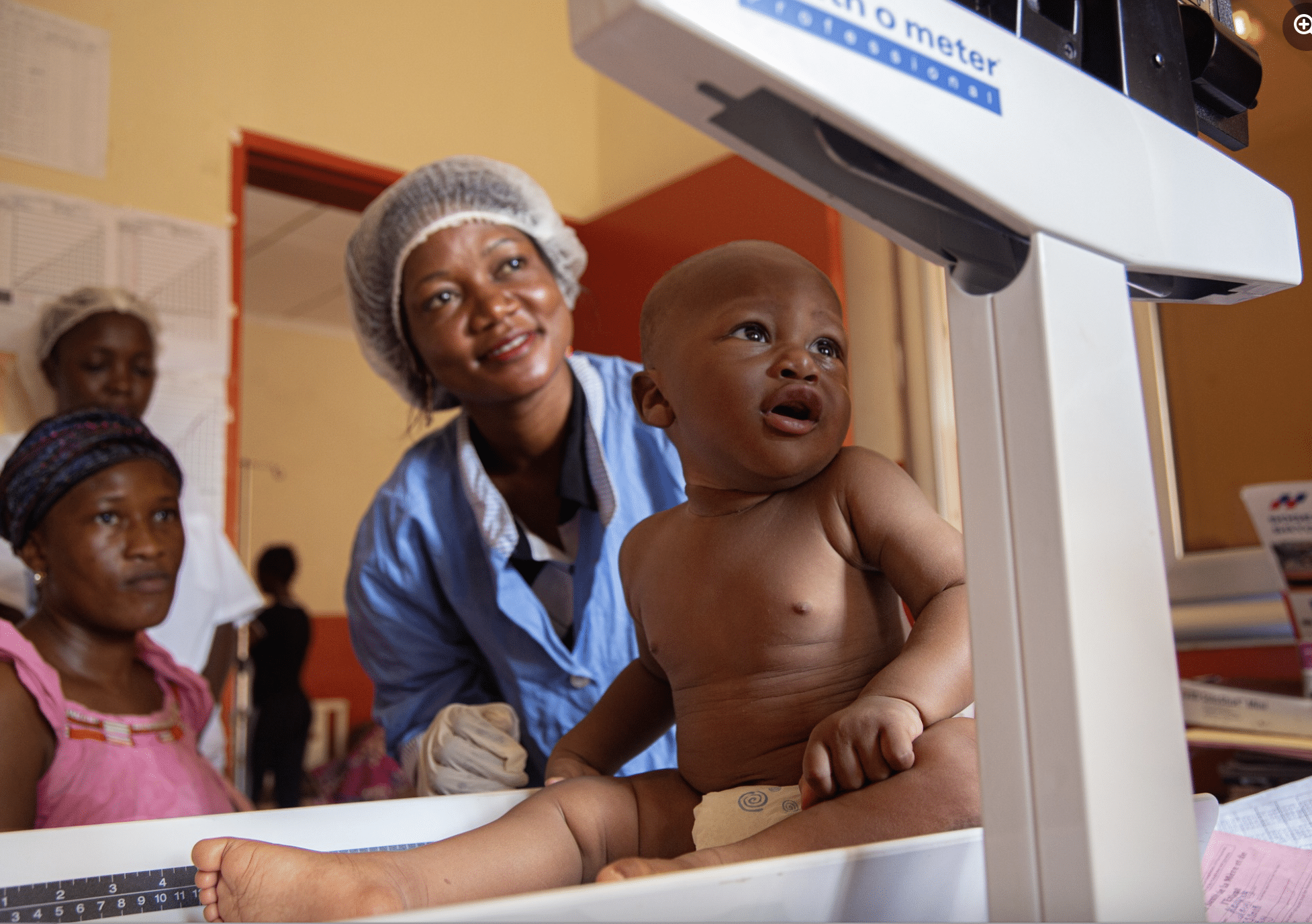The Johns Hopkins Center for Communication Programs is a partner on the newly awarded USAID Guinea Local Health System Strengthening Activity, locally known as “Projet Notre Santé,” our health in English. The Activity is led by RTI International, funded by USAID and designed to work alongside partners including the Ministry of Health to sustainably improve the quality, accessibility, and affordability of health care in Guinea.
CCP will lead social and behavior change work for the project, a five-year undertaking that will work to achieve a long-lasting and sustainable impact. The work will be done hand-in-hand with local stakeholders in the community: the health care providers, the patients, community health workers, mayors, religious leaders, and more.
The CCP team in Guinea recently participated in a co-design workshop with these many constituencies to get immediate input from those who use the local healthcare systems to ensure that the work being done is the work that the communities can benefit from. The goal is to improve health outcomes for Guineans, particularly women and children, by delivering equitable and integrated health services focused on malaria, family planning, and maternal and child health.
“Projet Notre Santé is integrating local actors right from the beginning,” says Amiata Kaba, CCP’s Chief of Party in Guinea. “The project will have a big emphasis on community control and strengthening the skills of local stakeholders in order to make sure that whatever we put in place lasts long past the end of the project.”
Says Kendela Diallo, CCP’s monitoring and evaluation officer in Guinea: “We really want to be giving more and more ownership to the communities.”
An exciting component of the project is that along with CCP, two local non-governmental organizations in Guinea – Centre Africain de Formation pour le Développement (CENAFOD) and Comité des Jeunes Mon Avenir D’abord (CJMAD) – will be involved throughout.
The project will work across three regions including Boké, Kindia, and Labé, and across the five communes in the capital city Conakry, covering an estimated 50 percent of Guinea’s total population. The activity is expected to run through December 2027.
“We are proud of the progress we have made over the past decade to strengthen Guinea’s health system and drive down malaria rates, and we are committed to continuing to work closely with USAID and the Government of Guinea to improve health outcomes for Guineans,” said Hala AlMossawi, vice president for global health at RTI, in announcing the project. The new project “will continue to work toward a healthier, stronger, and more resilient Guinea.”
CCP also plans to leverage its networks and strengthen the capacity of the Ministry of Health and local partners to use behavioral science and health data to tailor social and behavior change interventions.
Kaba says the opening workshop made it clear that a good place to start will be with social norms research, investigating the knowledge, attitudes and practices in the community that contribute to or detract from the success of the health care system. He says that focus groups with marginalized people including displaced youths, disabled people, and women – 84 percent of whom cannot read – will be important to really get at the underlying challenges in Guinea.
He also says he expects a big emphasis on improving provider behavior and delivering care in a culturally sensitive manner.
In the co-creation workshop, there was a lot of focus on challenges to previous health projects in Guinea and conversations on opportunities for Notre Santé. One immediate priority that became clear was the need to figure out best practices and lessons learned from past projects.
Co-creation participants also discussed how existing training manuals for health providers should be updated and enhanced. It’s not just about improving the health care experience, but also making sure that community members understand the improvements and how they can benefit.
“Notre Santé wants to find a way to empower communities to hold providers accountable, too,” says CCP’s Antonia Morzenti, who is working with the Guinea team. “Notre Santé wants to motivate community members to seek care, but also give clinics the motivation to provide the best care possible.”





